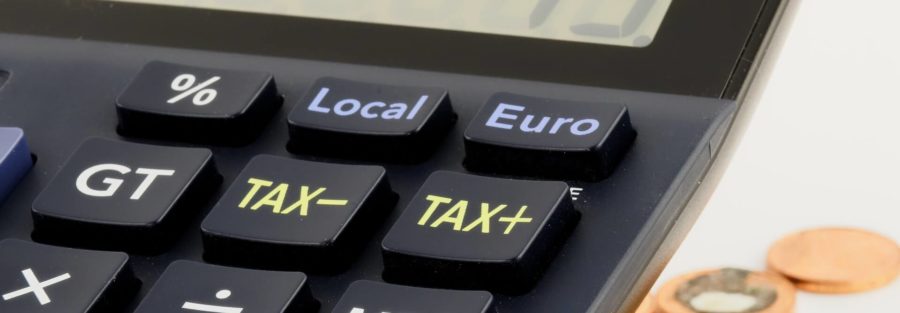The end of income tax year is fast approaching and will end on 31 March 2019. It’s an opportunity to remind you of some tax saving tips and strategies you can take to help minimise your next tax bill.
Here’s a handy list of ways to save tax.
The list is a summary only and is not intended to be exhaustive or complete.
However, I believe that there’s a reasonable chance that you’ll find a couple of tax saving tips and ways to save tax on your tax bill.
You can obtain a more detailed list with many more ways to save tax here.
FIXED ASSETS REVIEW

Scrutinise your fixed asset register to ensure your fixed assets are correctly categorised and the correct tax depreciation rates are being applied.
If you no longer use an asset and the cost to dispose it exceeds its disposal value, you can write it off.
Assets costing less than $500 (GST exclusive) can be written off immediately. This assumes that it’s not an upgrade part of a wider acquisition of the same asset from the same vendor, with the same tax depreciation rate.
You may claim depreciation for a full month for any part of a month that you own and use an asset.
Consider buying replacement assets before 31 March 2019 to claim one month’s depreciation deduction.
If you anticipate making a loss on selling an asset, consider selling it before 31 March.
If you think you’d make a gain on selling an assets, consider postponing selling it until after 31 March.
Commercial fit-out
The tax depreciation rate for buildings with an economic life exceeding fifty years is 0%.
To maximise taxable depreciation deductions you need to separately identify, where possible, commercial fit-out expenses (so that depreciation tax deductions can be claimed) from the building itself.
BAD DEBTS

You can claim a taxable deduction for bad debts that you’ve written off during the current income tax year.
You must be able to demonstrate that you have undertaken a process of determining that the debt is “bad”.
Individual trade debts should be reviewed. They must be actually written off in your accounts receivables (“debtors”) ledger before 31 March to be allowed.
A debt is generally classified as bad if a reasonable and prudent person would conclude that the debt is likely to be repaid.
The length of time that the debt has been outstanding and what you’ve done to collect it will be key factors in determining if it’s a bad debt.
A debtor doesn’t have to be insolvent for the debt to be classified as a bad debt. You can still pursue them for the debt.
EMPLOYEE WAGES, HOLIDAY PAY AND ANNUAL LEAVE
Employee expenses owed at 31 March 3019 (e.g. holiday pay, bonuses, long-service leave), providing payment is made within 63 days after year-end, can be claimed.
Therefore if you pay them before 2 June 2019 you can claim them in the period ended 31 March 2019.
CLOSING STOCK
Unsold trading stock (excluding livestock) at 31 March 2019 must be valued, subject to meeting relevant criteria, using one of the following methods:
Cost;
Discounted selling price;
Replacement price;
Market value if it’s lower than cost.
Obsolete stock or stock “write-downs” aren’t generally not tax deductible.
Before 31 March 2019 you should consider carrying a stock-take. You must physically dispose of any obsolete stock or value it by using one of the four methods listed above.
If your turnover is less than $1.3 million you may value your closing stock at its opening stock value.
But only if you can reasonably estimate that your closing stock is valued less than $10,000.
MIXED USE ASSETS

Inland Revenue recently introduced new, stricter, legislation to determine income tax and GST obligations for assets which are used for both private and business purposes (“mixed use assets”).
Rules specifically focus on people with holiday homes, boats and aircraft.
If the mixed-use asset rules apply to you, ensure that you have kept complete and accurate records of relevant income and expenses.
We wrote an article last year on taxing mixed-use assets.
REPAIRS AND MAINTENANCE

Broadly speaking, repairs and maintenance expenses are deductible only to the extent they have been incurred during the income tax year.
Tax legislation draws a very thin line between a tax-deductible repairs and maintenance and capital expenses (which are not tax-deductible).
Consider making repairs and maintenance before 31 March 2019 to bring forward the tax-deductible expense – especially if your rental property has losses.
Losses will be subject to new loss “ring-fencing” rules with effective from 1 April 2019.
VEHICLE EXPENSES

If you own a vehicle which hasn’t been used exclusively for business, you must keep a vehicle logbook.
The logbook must be used to determine a business use percentage for income tax, GST and fringe benefit tax purposes.
If business usage has significantly changed, you’ll need to recalculate it.
LEGAL FEES
Some legal fees are not tax deductible.
For example professional fees related to forming a new company or a trust and some capital expenditure are not tax-deductible.
WORK IN PROGRESS
At 31 March 2019 you need to review any jobs “in-progress”, to determine their values and a percentage of completion, income received, and expenses incurred to date, and anticipated profit.
This list of tax saving tips has been carefully prepared. It has been written in general terms and should be seen as broad guidance only.
It should not be relied upon to cover your specific tax or personal circumstances or situation. You should not act upon this list of ways to save tax without seeking professional advice.
Please contact us to discuss these matters in the context of your particular circumstances.
Minimise Accounting Fees with End of Year Checklists
Professional fees are affected by several factors, including the time and complexity due to special circumstances and the reliability of information supplied. Delays (and increased fees) are inevitable if key information is not supplied.
We’ve prepared some checklists to help save you time and money when you prepare your 2019 financial statements and income tax return(s). Grab your free accounting checklists here.
Business Advisory Accounting & Tax Services Limited, its directors, partners, employees, contractors and agents do not accept any liability from any action taken or inaction by anyone relying on the tax saving tips.



